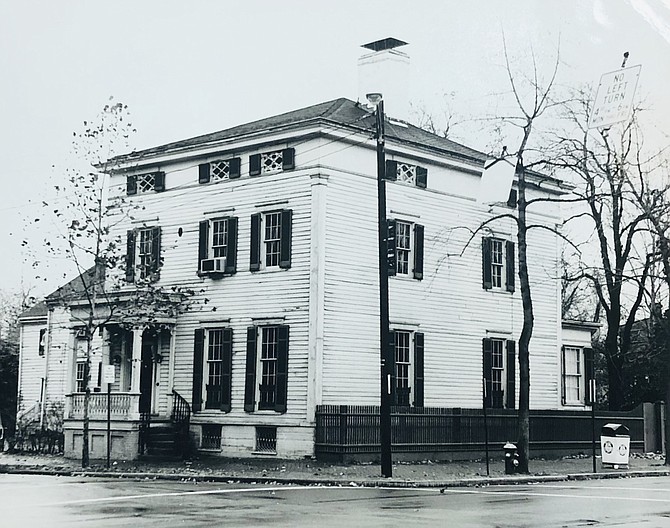The Lee-Fendall House is the home of two long-lost volumes, recently discovered. Alexandria Local History Special Collections
Casenove Lee, a young relative of Confederate Gen. Robert E. Lee and a native of Alexandria during the Civil War, once asked his relative an intriguing question about military leadership during the war. Casenove asked the “Gray Fox,” as General Lee was known, “which of the federal generals was the greatest?”
Lee replied, McClellan “by all odds.” So much for Grant’s leadership of the Union army as a whole.
Now housed at the Lee-Fendall House in Alexandria, Cazenove Lee’s recently discovered account of this exchange forms part of a memoir he started around 1907 but failed to finish before his death in the spring of 1912.
For most of the past century, serious scholars of the American Civil War have made assertions that run contrary to Cazenove Lee’s claims. Professor William Davis of Virginia Tech argued in his book Crucible of Command, that “For Lee, McClellan was an open book of dull reading.”
The two-time Pulitzer Prize winner Douglas Southall Freeman noted that while “Little Mac” was a superb organizer, he was “not far from a panic” in his engagements with Lee.
Cazenove Lee’s claims are reminiscent of the ahistorical works that were produced by the interpretative movement sometimes known as the “Lost Cause” of the Confederacy. The movement took on new life following Lee’s passing in 1870, when many southerners attempted to lay the groundwork for his historical canonization. Publications sprang up which even attempted to argue a non-existent genealogical connection between the general and the Scottish King Robert the Bruce, revered by Scots for his victory over the English at Bannockburn in 1314. In the words of Yale University Professor David W. Blight, the Lost Cause insisted the ideas of the Confederacy “were never truly defeated on the battlefield” but “were only overwhelmed.”
The discovery of Cazenove Lee Senior’s account will necessitate some rethinking by historians. Previously, the only insight into his thoughts were documented in his unpublished “Reminiscences,” which are housed in the Local History Special Collections at the Barrett Branch Library. Now a new document has emerged on the other side of Washington Street that sheds new light on the dynamics of the war. Tucked away in the archive at the Lee-Fendall House is a two-volume memoir of the civil war and another two-volume detailed genealogy.
And they contain an interesting twist.
Cousin Cazenove attempts to portray his father Cassius, also a cousin of the general, as a “strong Union man” who “used all his influence to dissuade Col. Lee from taking any part in the war.” However, Casenove does not mention that his father relocated to Canada and likely remained there for the duration of the war. Some have even argued that during his time in Canada Cassius performed acts on behalf of the Confederate government, before his eventual return to Alexandria.
The discovery of Cazenove Lee’s account will necessitate some rethinking by historians. Previously, the only insight into Cazenove Lee’s thoughts were documented in his unpublished “Reminiscences” of Cazenove G. Lee Sr., which are housed in the Special Collections at the Alexandria Public Library. In the newly discovered document, Cazenove attempts to portray his father Cassius as a “strong Union man” who “used all his influence to dissuade Col. Lee from taking any part in the war.” However, Casenove does not mention that his father relocated to Canada and likely remained there for the duration of the war. Some have even argued that during his time in Canada, Cassius performed acts on behalf of the Confederate government, before his eventual return to Alexandria.
Each morning during my daily constitutional, I stop at the tombstones of Cassius Lee and Cazenove Gardner Lee Sr. in the Christ Church Cemetery on Wilkes Street. During these daily visits I have often wondered what they could have told us about their famous cousin, Robert E. With the discovery of this new document, I have just a little more of an answer.
